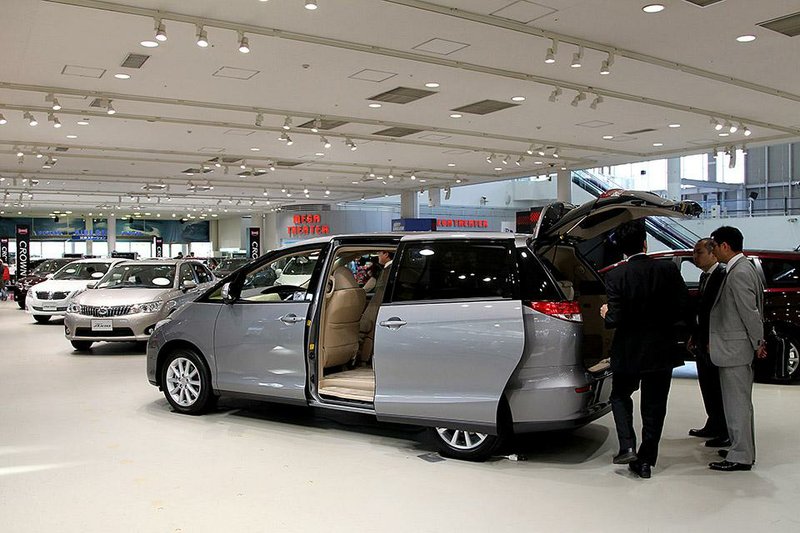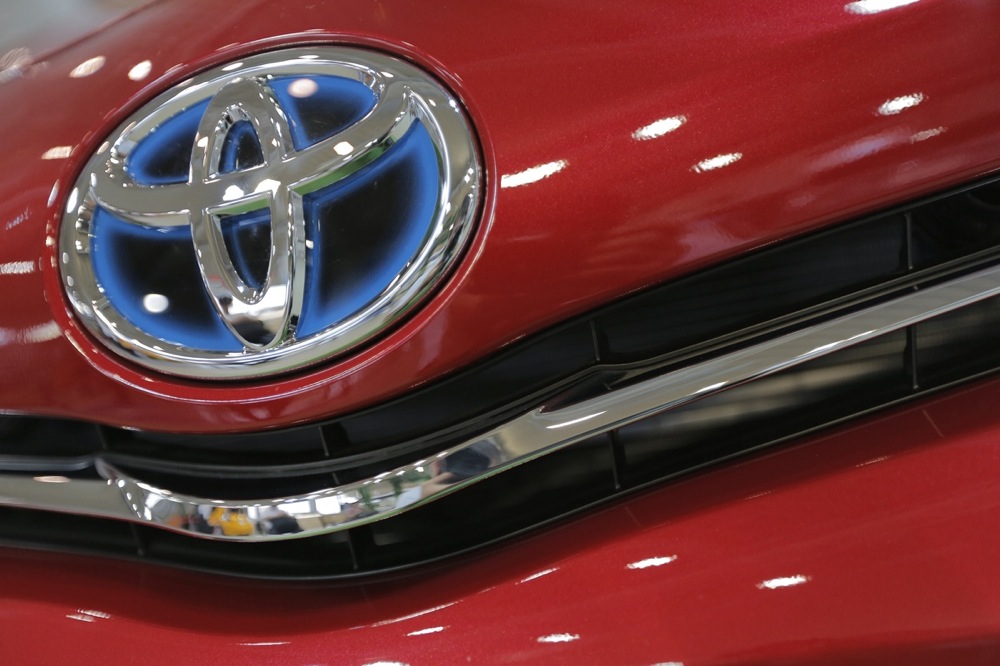Toyota Motor Corp. advised U.S. owners of some of its cars to keep passengers out of front seats until dealers can repair defective air bags, four months after taking similar actions in Japan.
Toyota issued the public warning as the National Highway Traffic Safety Administration stepped up efforts to reach at least 4.7 million motorists driving with potentially faulty air bags. The carmaker Monday added to its air-bag recalls for the second time since June, when the company joined Honda Motor Co., Nissan Motor Co. and Mazda Motor Corp. in instructing dealers in Japan to disable passenger-side air bags and tell owners to prohibit passengers from sitting in the front seat.
The Toyota recall of 247,000 cars covers the 2003 to 2005 Corolla and Matrix, the 2002 to 2005 Sequoia and the 2003 to 2005 Tundra. Also included is the 2003 to 2005 Pontiac Vibe made by Toyota.
Inflators can rupture in air bags manufactured by parts supplier Takata, causing metal fragments to fly out when bags are inflated in crashes. The problem has caused serious injuries. So far, automakers have recalled about 12 million vehicles worldwide because of the problem.
The recall covers vehicles in South Florida, along the Gulf Coast, and in Puerto Rico, Hawaii, the U.S. Virgin Islands, Guam, Saipan and American Samoa.
"This is a very focused attempt to raise awareness with owners of affected vehicles in these particular regions, where we have found the incidence of failures is the highest," said John Hanson, a Toyota spokesman. He didn't immediately respond to an email sent after regular business hours seeking comment on why the warning was issued four months after Japan.
Toyota alone has called back more than 875,000 vehicles in three separate campaigns as part of recalls also affecting General Motors Co. and Bayerische Motoren Werke AG in the U.S. The National Highway Traffic Safety Administration and the carmakers are investigating air-bag inflators made by Takata Corp. that may malfunction if exposed to consistently high humidity and deploy with so much force that a metal part could rupture and strike occupants.
Toyota is directing dealers to make fixes available sooner in high-humidity areas, where the safety agency urged for particular urgency in response to four potential deaths linked to the flawed safety devices. Worldwide, about 2.27 million Toyota vehicles had been affected by the air-bag recalls as of June, the company said.
If parts aren't immediately available, Toyota dealers will, with the owner's agreement, disengage the front-passenger air bag and put a warning sticker on the dashboard, Hanson said.
Honda is still examining air-bag inflators that have been replaced as part of its recalls of 2.8 million vehicles in the U.S. tied to Takata air bags the past two years, spokesman Chris Martin said. The company hasn't decided yet whether to issue warnings against sitting in front-passenger seats in the U.S.
"We will act appropriately based on the results of this investigation," Martin said by phone. Honda is Takata's biggest customer and owns 1.2 percent of the Tokyo-based parts maker.
Mazda has no plan to have dealers disable passenger-side air bags in the U.S., spokesman Keiko Yano said by phone. The company has recalled 159,614 vehicles globally because of Takata air bags. Separately, Mazda has asked owners of 34,551 vehicles in Florida, Hawaii and Puerto Rico to get their air-bag inflators replaced as of June, she said.
Nissan spokesman Chris Keeler said the company couldn't immediately comment about whether it will make any changes to its U.S. recall strategy.
Takata shares plunged as much as 22 percent, the steepest drop on record, in Tokyo trading. The shares declined 28 percent this year through Monday.
Toyota, the world's largest automaker, sent a recall notice to the safety agency on Sunday for 247,000 vehicles, including some models of the Corolla, Matrix, Sequoia and Tundra. The majority of these vehicles have been subject to company recalls in June this year or May 2013, Hanson said.
It's uncommon for automakers to file a formal recall with regulators more than once for the exact same cars and exact same problem. Toyota is repeating its efforts to reach owners because of the potential danger, Hanson said.
"Consumers have been bombarded by news of recalls to the point that they are probably ignoring them," said Michelle Krebs, senior analyst at AutoTrader.com. "This air-bag issue is widespread and needs to be assessed by consumers right away."
The front-passenger air-bag inflators at Toyota, Honda, Nissan, BMW, GM and Mazda are at risk of rupturing, the National Highway Traffic Safety Administration said Monday in a statement on its website. The safety regulator cited consistently high humidity and said its investigation is continuing.
"As a result of NHTSA's investigation, Toyota and Takata have brought forward new test results that underscore the urgency for owners in high-risk areas to take immediate action," the agency said.
Motorists wondering whether their cars are subject to a recall can type their vehicle identification numbers into the government's website.
Information for this article was contributed by Ma Jie, Yuki Hagiwara and Jeff Green of Bloomberg News and by The Associated Press.
Business on 10/22/2014

